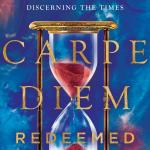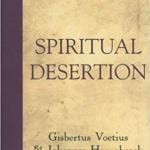Clearly, we don’t really know how long people lived in the world of the first part of Genesis. If nothing else, this is because the calendar was a slow development that came much later (for that matter, the solar year vs. the lunar year leaves lots of open questions). But! The overall point that those folks lived to a great age based on the natural cycle of a year is likewise pretty clear. They lived to be roughly 10x our age, whatever the actual number may have been.
This has implications for the Incarnation, as well as our theology of Genesis. Jesus took on our post-fall, weaker natures. Not that he was sinful, but that he gave up “a vitality ten times strong than ours.” (139)
If not for sin, man would not have died at all. But even aside from that, then and now vitality was a combination of heredity and personal characteristics. Sin injects death into this equation, and runs with us throughout our lives. We don’t know what life would be without sin: “We do not become mortal at a later point in time; we are born mortal.” (141) All we can do now is look forward to the breaking and renewing of the world. Only then will we see a world without sin. Unlike the previous world without sin, the coming kingdom of glory will be a place where sin can never come. Paradise can die with the curse, but the coming new earth will never die.
This means that the world of Adam would have had to have passed over three obstacles to become like the coming kingdom of glory:
“in the first place he [Adam] had to acquire spiritual incorruptibility; secondly, that the world had to become curse-proof… and thirdly, that his human nature had to become insusceptible to humiliation.” (143)
The sacrament typifying the transition from Paradise (where sin was possible) to the kingdom of glory (where it is not) was the Tree of Life. Whether this tree actually conveyed life or was just a sign is debated, but Kuyper thinks we can sort out the debate.
Specifically, he thinks that the Tree of Life as a mere sacrament is insufficient. This is because a ‘sacrament’ implies that “first, restored faith be present… second, this faith be threatened; and third, the strengthehing of this faith be sought with God and not with man.” (147) The implication, were the Tree of Life a mere sacrament, is that unfallen Adam needed a support to his faith, or even that he had a ‘restored faith’ in the first place.
This is not the way the covenant of works operates. Adams unfallen faith, like that of Christ, was tied directly to God.
“Even as Christ himself… also did not have faith in the Lord Jesus Christ but rather, and exclusively, general faith in God. This general faith does not mean, as it is often understood, admitting readily and wholeheartedly that there exists a provident God who holds our breath in his hand. Faith as Adam possessed it in the state of righteousness and as Christ possessed it according to his human nature has nothing to do with that kind of rationalistic bleating, but is the immediate connection, without any interference or obstacle, of the conscious life of the soul with the living God.” (147-148)
Faith, in other words, in the context of the covenant of works, is directly tied to action. Disobedience, then, kills it instantly. While faith lives no strengthening via sacrament is necessary. So the Tree of Life may have had a sacramental element, but that cannot have been its primary purpose.
So what do we know about the trees in Eden? Basically, that there were two that were special: life and knowledge, i.e. body and soul, spirit and morality, being and consciousness. All of this to say that the Tree of Life is about natural life in general, while the Tree of Knowledge has spiritual significance. This matches the reality we still live in today: we are spiritually dead, yet always reaching out for natural life. God bars the way to natural life in Eden, and today still keeps us from lasting natural life. We still have plants that give life, though now many give death as well.
Kuyper suggests that had post-Fall Adam eaten of the tree, he would have lived forever as this is the food of heaven. In heaven, the ‘normal’ plants are all the Tree of Life, and instead of temporary sustenance we will have the sustenance that provides immortality.
Kuyper ends with two points; 1) there is still a sacrament to the trees! It’s just not the key point. Likewise; 2) the Fall was the disobedient mixing of natural and spiritual life:
“Body and spirit are distinguished in us in such a way that for our physical life we must want to be dependent on nature and its food. Not wanting this is to resist God’s ordinance. But for the life of the spirit, conversely, that other law applies, that this higher life in us must be elevated above nature, and that we must not expect its sustenance from nature, but must expect it from God. Wanting to expect moral knowledge and the maturation of our spiritual life from the eating the fruit of a tree would be a total reversal of God’s instituted order.” (154)
Dr. Coyle Neal is co-host of the City of Man Podcast and an Associate Professor of Political Science at Southwest Baptist University in Bolivar, MO













